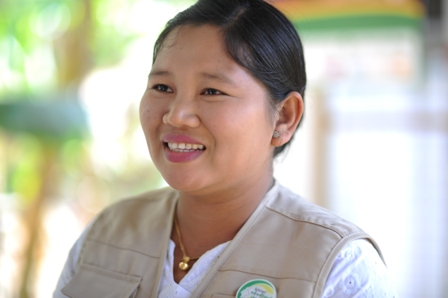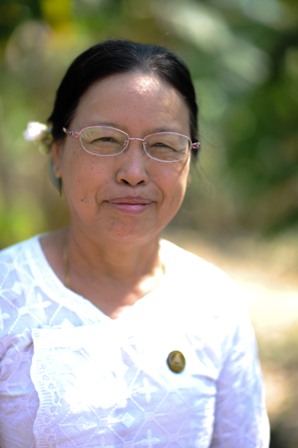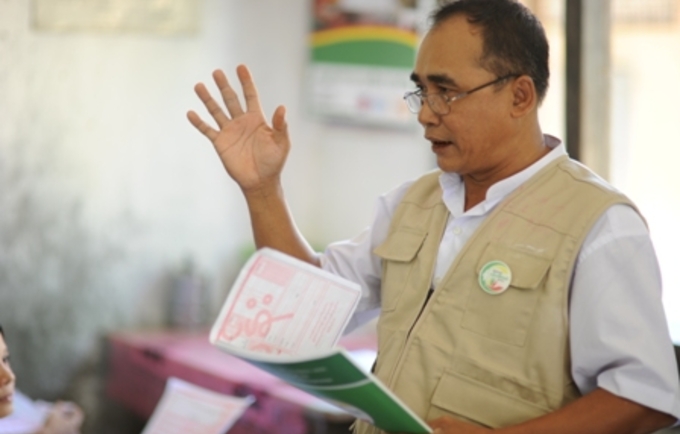Approximately 120,000 primary school teachers and supervisors from across Myanmar undertook five days of training devised by UNFPA and the Ministry of Population from 17 to 21 March (2014) as part of the final preparations before Myanmar starts its first census in over three decades.
In Kyangoon and Kangyidaunt in the Ayeyarwady region, also famously referred to as the “Rice Bowl of Myanmar,” 384 enumerators and supervisors attended the week long training before they officially put on the census waistcoat, cap and clipboard to carry out the population count. The census will take place from 30 March to 10 April 2014.
The enumerators and supervisors trainings were the last in a series of three specially devised instruction sessions for the census dubbed “training of trainers”. The first round of training, which started in late February, included 464 master trainers, the second round involved 7,200 district trainers in mid-March.
U Soe Oo, a 52 year-old district immigration officer from Kyaunggon, Ayeyarwady, who also participated in the 1983 Census as a student, said that there was a “big difference between the previous census and the upcoming census in terms of the public awareness campaign.” He also said that in 1983 the data collection was carried out using the “de jure” methodology whereas the 2014 census will be using the “de facto” method, which is more appropriate for Myanmar he added.

There are two definitions which can be used in conducting a census, the de facto or the de jure method. The Myanmar census will use the de facto method which counts where persons are at a particular point in time. This particular time will be the Census Night – the night between the 29th and the 30th of March 2014. The de jure method counts only according to the place of normal residence.
Ma Myo Myo Aye, a 34 year old Enumerator (and primary school teacher) said that the census will lead to “big changes for Myanmar as it would help improve the socio-economic and housing conditions.” When asked about if she was excited to be taking part in the census as an enumerator she said that “she was assigned, but wanted to volunteer herself.”

UNFPA provided technical support for the development of the training curriculum and related instruction materials and provided funding for the three rounds of training sessions across the country involving master, district, enumerator and supervisor trainings. Technical assistance from Australia's Statistics Bureau and India's Census Bureau was also provided to improve the census training manuals and accompanying learning materials.
Daw San San, a 59 year-old, head mistress and supervisor from the Kangyidaunt census township committee also participated in the 1983 census as a student said that the “quality of training has improved since she participated in 83. “I am happy to see the positive chances. This census does not only focus on the demographic data, but also focuses on household data, which will help in the long run for the future development of the country. This time things are done more systematic and there is more sufficient training material, which makes a big difference.”
Everybody present within the borders of Myanmar on the Census Night (29th/30th 2014) will be enumerated regardless of their citizenship, religion, age, gender, etc.



